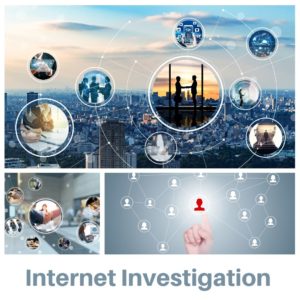Essential Due Diligence Tips for Charities
Due diligence checks on new funders, partners, contractors or other 3rd parties is essential to help manage reputational, financial and regulatory risks. Law Enforcement has also warned about the increased risk to organisations being targeted by criminals and increased risks from fraud, bribery, corruption, modern slavery and terrorist financing at this present time. It is therefore even more important that charities of all sizes understand who they are working and partnering with and what is the source of any funds/donations.
Internet investigations are an increasingly useful tool in undertaking this due diligence work but it is important that such investigations are conducted efficiently and are compliant from both a legal and regulatory perpsective. Finding the right information can be a challenge and requires more than a simple google search. Here are 5 questions to consider when embarking on such investigations:
- What are the legal and regulatory constraints regarding such enquries? In particular when could such enquiries be deemed to breach an individual’s right to privacy under Human Rights law, as well as data protection legislation such as the Data Protection Act 2018? All actions and justifications should be logged as part of the investigation file.
- What equipment do I need to keep the investigator and our organisation safe and secure online? Basic essential equipment such as Virtual Private Network (VPN) and anti-Malware software should be a priority but also determine if you also need a dedicated computer or virtual desktop so that different investigations don’t impact each other?
- What software do I need to bring efficiency to my investigation. For example not all web browsers are equal in this respect. Firefox for example has lots of ‘add-ins’ that can add privacy and enable full page screen capture of evidence etc. Other software such as visual reporting aids can bring efficiency and professionalism to your investigations.
- Do I fully understand how and where information is stored on the internet and do I know how to gain access with simple searches? Even use of advance google search criteria will improve search results but again other more specialist search engines may be appropriate. Beyond search engines what other data sources are out there, particularly for international searches?
- How will I gather and record the evidence gained? Understanding at the outset what the intended purpose and audience of your investigation report will be is an essential part of determining this. For example am I looking to aid an internal decision about onboarding a supplier or accepting funds, or am I gathering evidence for potential civil or criminal proceedings?
These are just some of the key questions to consider before you embark on these types of investigation.
If you would like to learn more about how to conduct such investigations please check out details of our course below.
Neil Tyson will show you how to conduct internet based: due diligence, people or asset tracing and ultimate beneficial ownership enquiries.
The course will provide delegates with an improved knowledge of performing and recording open source internet based investigations.
